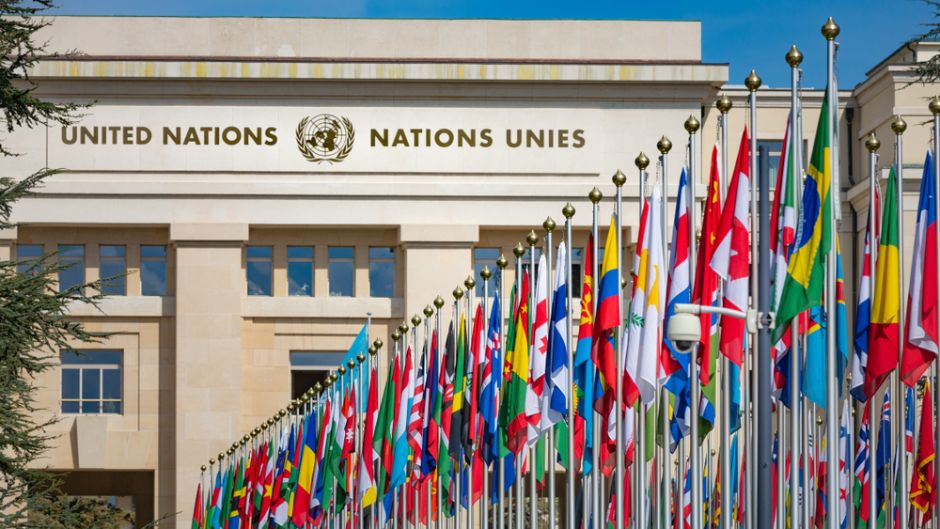Through the law school's Environmental Law Program, students have the opportunity to earn credit participating in the annual negotiations of the United Nations Framework Convention on Climate Change.
To prepare to attend the conferences, students take two courses: "Climate Change Law and Policy" in the fall and "U.N. Climate Negotiations" in the spring. Professor Jessica Owley, director of the Environmental Law Program, teaches both courses.
“We are one of the only law schools in the U.S. that takes students to the annual treaty negotiations. We pair the students with partners, so students can learn about the role different organizations play in climate change treaty negotiations while also helping the organizations as they work towards their climate mitigation and adaptation goals,” says Owley.
Students have attended UN COP Conferences in Madrid in 2019 and Egypt in 2022 and will also attend COP 28 in Dubai, United Arab Emirates, in fall 2023. At these meetings, Miami Law students make connections with research NGOs resulting in future opportunities to continue climate change research and engagement.
Launchpad for Continued Climate Change Engagement in Korea and Germany
Law student Sam Stephens attended the COP 27 in Egypt and covered negotiations on the Technology Mechanism, where he developed relationships with several delegates from various countries. Following the conference, Stephens worked with Professor Owley to become an official observer for the Technology Mechanism’s follow-up meetings.
From his connections and official observer status, Stephens traveled in March of 2023 to Korea to the Technology Executive Committee’s 26th meeting, where discussions on building upon the progress made at last year’s 27th Conference of the Parties to the United Nations Framework Convention on Climate Change continued.
In September of 2023, the third-year law student continued his work and traveled to Bonn, Germany to attend the Climate Technology Centre and Network 22nd Advisory Board meeting, where the body was reporting on its work in 2023 and discussing ways to improve upon this work in coming years. The CTCN is the implementation body of the United Nations' Technology Mechanism.
After COP 27 and the trips to Korea and Germany, Stephens worked to familiarize himself with the specific issues facing the TEC and the larger Technology Mechanism and wrote a research paper on potential improvements of the body. The paper is forthcoming in the Arizona Journal of Environmental Law and Policy and Stephens has been asked to present it at future TEC meetings.
After graduation in May Stephens will continue to focus on environmental law and will be working at the Nuclear Regulatory Commission in Washington, D.C. in their Honors Program.
“These opportunities give our students a worldwide lens into the issues of climate change and open doors for them to continue to do work in the area after the conferences end,” said Owley.
More on the Environmental Law Program
More on the program for UN international climate change conferences

